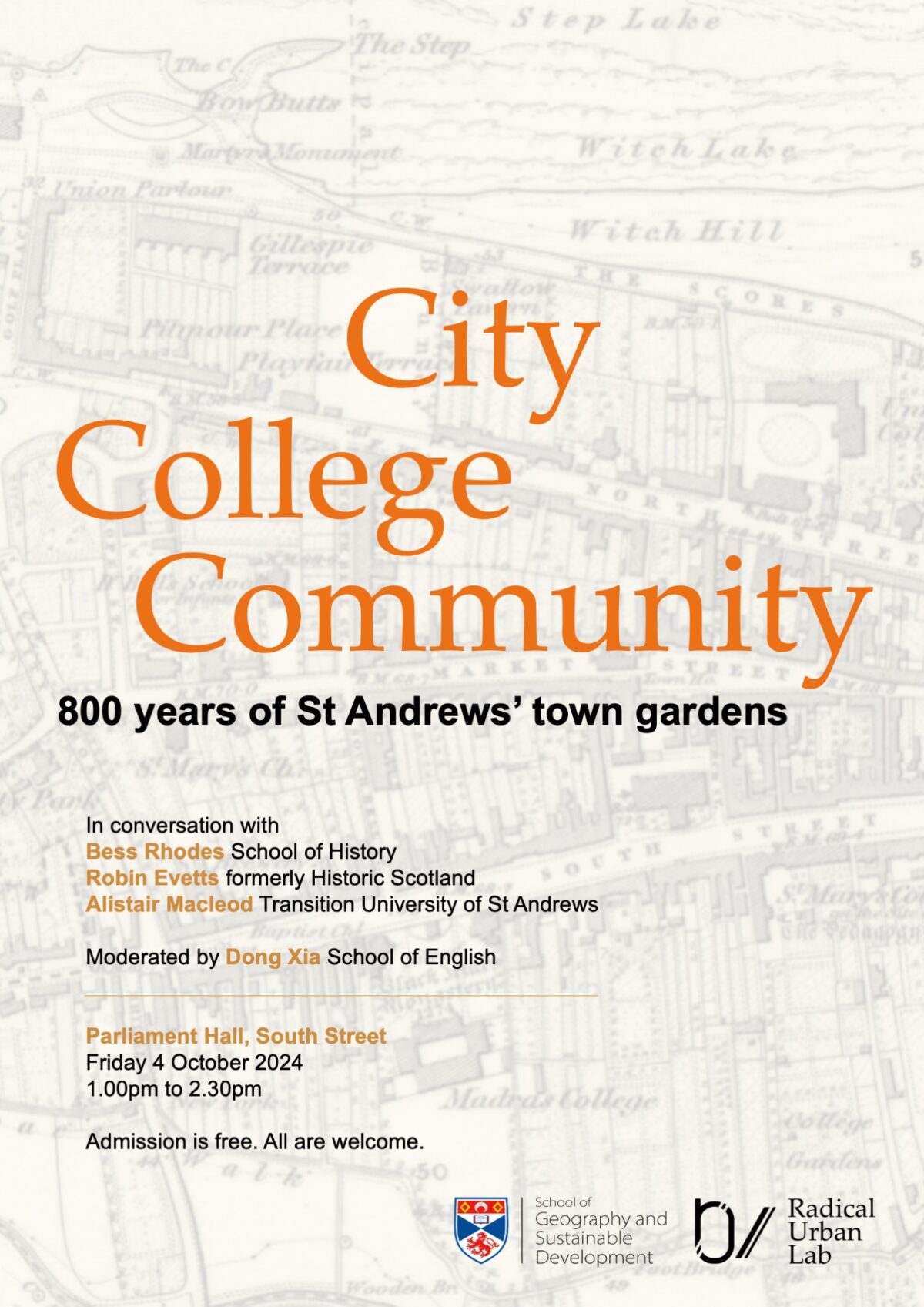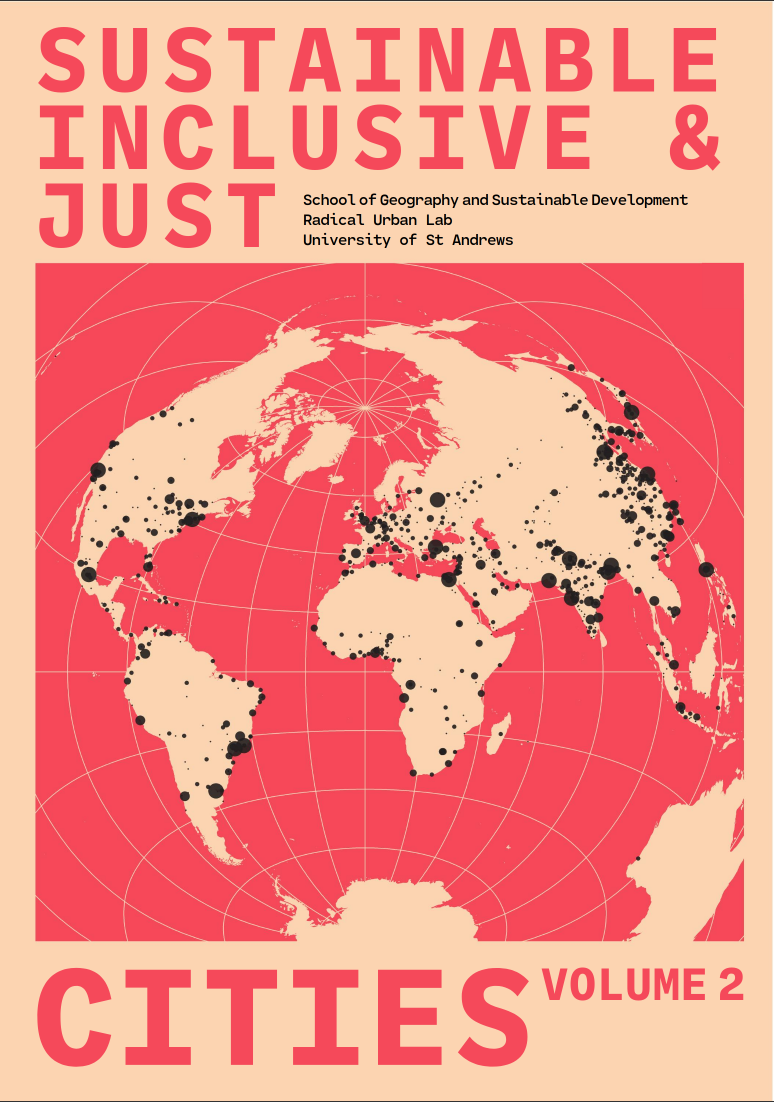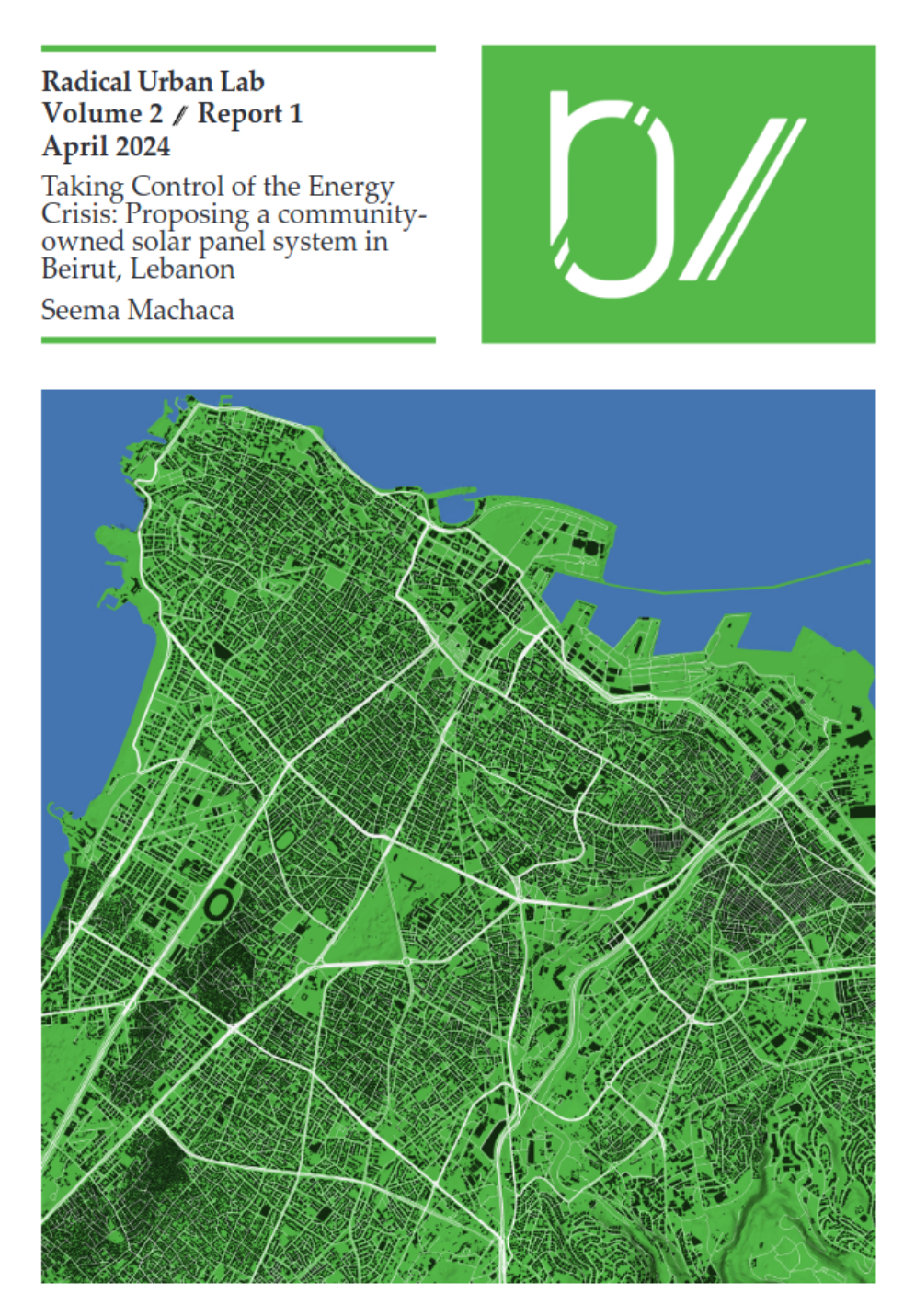The result is a stunning mosaic of stories of strife and hope, challenge and opportunity, threat and prosperity. Read the wonderful preface kindly prepared by Prof Deb Cowen of the University of Toronto below!
Preface
Deb Cowen, Professor of Geography, University of Toronto
We are living in defining times. Warnings of apocalypse surround us and fuel fear, rage, and denial – but also beautiful and courageous action. This a time of both profound urban crisis and radical urban repair. This means that what we do and how we know matters profoundly. The material stakes of urban knowledge and practice are hardly new, but as we hurdle through all the cautions from scientists, scholars, communities and social movements about collapsing ecologies, precarious economies, failing infrastructures and deepening divides, it becomes clear that we are at the edge of a precipice. Just and sustainable planetary and urban futures are more contingent than ever on how we apprehend and act at this precise and fraught conjuncture. This collection of exciting work offers deeply thoughtful and creative ways to meet these massive challenges, and thus makes a vital contribution to our collective urban futures.
As the collection demonstrates, cities and urban life both drive and diagnose so many things that are failing to sustain planetary ecologies and economies. Formal processes of urbanization produce untold toxicity and devour precious lands and waters, while they divide and dispossess populations, often failing to provision the bare necessities of life. Almost regardless of the specific topics or places we look to, we can observe these frightening trajectories. Mainstream approaches to urbanization today are not just implicated in processes of planetary change that threaten the very integrity of future life. Because of their anchors in unfettered and extractive growth and unfailing commitments to market models of value, they are often building an expressway to that precipice. This means that trenchant and rigorous critique must be central to any project of sustainability.
As cities and urban life continue to climb out of COVID-19 lockdowns and prepare for the next unknown but anticipated global pandemics, the challenges have accelerated. While people were locked down, capital moved perhaps faster than ever before. Even during ‘lockdowns’, circulation of all kinds required the labour of millions, and countless ‘essential workers’- warehouse workers, port workers, bus drivers, meat packers, nurses and cleaners – succumbed to premature death. In most of the world’s cities, wealth continues to concentrate massively and in fewer hands, as the urban landscape polarizes along the lines of income and race. Dispossession and displacement – long features of settler colonialism – have become trademarks of urban life. Displacement sparks mass movement at all scales – refugees flee economic, climate, and political crises – and they encounter sometimes insurmountable borders within cities in the form of checkpoints, but also borders of belonging and mobility that line nation states. Displacement within cities is often a feature of gentrification, but increasingly it is fueled specifically by its financialized forms. In some places this has meant the wholesale and high-tech remaking of urban landscapes – elite housing complexes complete with private social and physical infrastructures.
The abundance of global precariousness in labour markets elevates precarity to an epoch-defining concept. In response, urban security and surveillance have intensified in many places, now policing a perpetual crisis that has deep roots in old imperial forms. Elsewhere, imperial forms are actively being assembled and deployed. Urban warfare is a standard of our time, whether in Syria or Sudan, while ‘urbicide’ and its corollary, urban genocide, take shape in Gaza in real time for planetary, multi-media witness. So clear are the devastating impacts on Palestinian human life, but so too, the toxic bombardment of munitions, chemical weapons and fossil fuels exhaust local and wider ecologies.
And yet, all these troubling trajectories are being actively and productively challenged by communities and movements around world. Rather than a race to the bottom, we see people and communities making active decisions to change course. Indigenous feminist economist and community leader, Winona LaDuke, explains how Anishinaabe prophecies have long identified this conjuncture, when two distinct paths open before us. She describes how one path is well worn, making it easier to amble along. But the other path, while more challenging initially, can take us much farther and in better ways. The second path that she describes is a sustainable one, which promises to heal relations and ecologies.
We only need look to Glasgow or Toronto to see examples of cities that are working to address the afterlives of relations and infrastructures of urbanization that were first shaped by slavery and colonization. The courageous persistence of Black and Indigenous communities in their demands for redress and repair offer a precious path for us all to walk and help build.
We can look to the projects of urban farming and alternative food economies as example of efforts in many cities, not only to address the immediate question of affordable and nutritious food supply, or to repair local ecologies, but also to generate alternative economies and infrastructures otherwise. In this way, people are working to heal urban landscapes and social worlds and reassemble them in a just and sustainable manner.
In the realm of employment and work, we see growth of cooperative enterprises that at once refuse the tenets of a cutthroat global competitiveness while re-investing in the possibility for democratic economic relations. Simultaneously reconfiguring economies, infrastructures and wider social and ecological relations, co-operative initiatives are offering inspiration that cross sectors. In the field of housing, cooperatives have long provided an inspiring alternative and addition to market or public forms. Co-ops are also accompanied increasingly by community land trusts, which likewise emphasize collective and collaborative governance of urban land and infrastructure. Land trusts sometimes start small, but they can have significant impact on much wider relations by virtue of how they work to bring land into community ownership and care.
We can likewise highlight the rejuvenation of the labour movement, and perhaps most notably in the very sectors that have engineered its global urban decline. Efforts are underway by precarious workers to assert their voice and power in the urban economies that constitute global supply chains. As prime example, we can look to the work of New York’s Amazon Labour Union and their multiracial and gender diverse leadership, who model a form of aspirational politics for precarious young workers of the world.
Of course, infrastructures of circulation and security are being challenged and remade in cities around the world. The proliferation of transit riders’ unions, who demand a seat at the planning table point to a sea change in top-down modernist planning practices. While certainly not brand new, these movements for infrastructural change often emphasize demands for a different process as well as outcome in their claims to city building. Alongside these vital efforts to encourage ecologically and socially enhanced mobility, urban citizens are also fighting carceral forms that erect barriers to movement and sometimes violently contain communities. These are thankfully too numerous to name in all their creative form, but we can simultaneously acknowledge movements for migrant justice, for Black lives, and for a generative politics of ‘abolition’ anchored in efforts to rebuild our social infrastructures.
I write these reflections from New York City, where multi-racial and multi-faith student movements are once again leading the way, courageously rejuvenating faith in the promise of just futures. Columbia students have made powerful stands for global and local justice anchored in their solidarity with Palestinians. But as they confront the crisis in the Middle East, they also come into conflict with campus administrators, and New York police, once again reminding us that the promising change that is underway at the critical conjuncture is often scaled in multiple, intentional and planetary ways.
These reflections highlight some of the beautiful lessons of this book, which brilliantly traces transnational urban geographies and circulation of transformative practice, as much as it also marks the multiple articulations of crises. People are working hard and collaboratively to assemble alternative futures in response to every single challenge named above and the authors guide us expertly in exploring otherwise
urbanism. I am deeply grateful to the authors for their powerful efforts.











